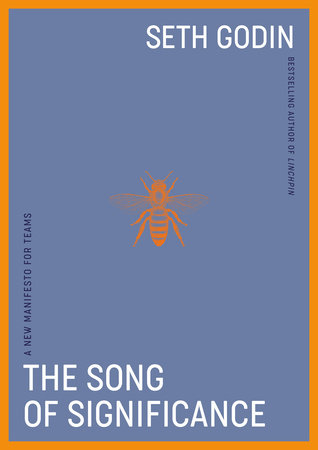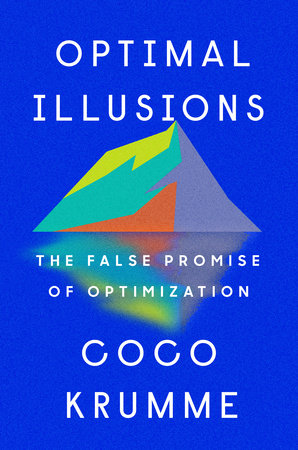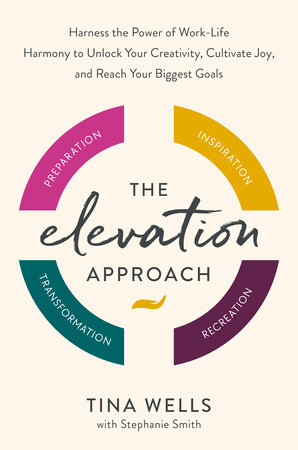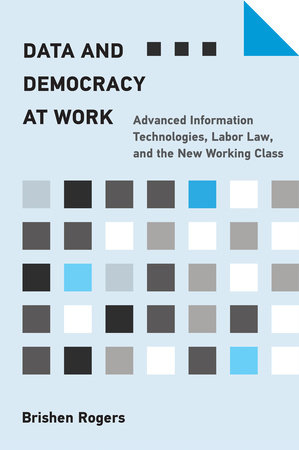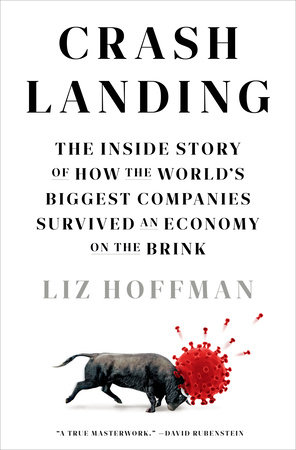The Song of Significance by Seth Godin is about understanding the impact of our actions and the importance of making meaningful contributions in both our personal and professional lives.
People often think that success is measured by wealth and fame. This book challenges that notion, suggesting that true significance comes from creating value and making a difference. That means success isn’t just about what we achieve for ourselves, but also about how we contribute to others’ lives.
In this summary, you’ll learn that finding significance involves a deep understanding of one’s passions and strengths, and then leveraging them to create positive change. Godin emphasizes the importance of setting meaningful goals, taking calculated risks, and embracing failure as a learning tool.
I recommend The Song of Significance for anyone seeking to redefine their perspective on success and for those looking to find more meaning in their work and personal endeavors.
Five Key Ideas in The Song of Significance
Here are the five key ideas I found while reading the book:
1. Redefining Success: The book challenges the conventional notion of success, encouraging readers to measure it not by wealth or fame, but by the value they add to others’ lives and the world.
2. Understanding Personal Strengths: Godin emphasizes the importance of self-awareness in recognizing one’s unique talents and passions, and using them to create meaningful work.
3. Setting Purposeful Goals: The book advocates for setting goals that align with personal values and contribute to the greater good, rather than solely pursuing personal achievements.
4. Embracing Failure as Learning: Godin stresses that failure is not a setback but a vital part of the journey to significance, offering opportunities for growth and learning.
5. Impactful Risk-Taking: The book encourages taking calculated risks to achieve greater impact, suggesting that playing it safe often limits the potential for making a significant difference.
Idea #1: Redefining Success
Redefining success is crucial in today’s world where traditional metrics like wealth and fame often overshadow more meaningful measures. Seth Godin in “The Song of Significance” challenges readers to rethink what it means to be successful. He argues that true success comes from creating a positive impact on others and the world, rather than just accumulating personal achievements. This shift in perspective encourages a more fulfilling and purpose-driven life.
In the book, Godin presents a detailed example of a successful entrepreneur who, despite achieving traditional success, felt unfulfilled until he started a social enterprise. This enterprise not only brought him personal satisfaction but also made a significant impact on a community. This story illustrates how redefining success can lead to more meaningful accomplishments.
“Success isn’t what you have, but what you give; true significance lies in the impact you make.” – Seth Godin, The Song of Significance
Rethinking success involves several key points:
- Identifying personal values and passions
- Setting goals that align with making a positive impact
- Measuring success by the difference made in others’ lives
- Seeking fulfillment rather than just achievement
Identifying Personal Values and Passions
Understanding what truly matters to you is the first step in redefining success. It’s about digging deep to identify your core values and passions. This self-awareness serves as a foundation for setting goals that are not just personally fulfilling but also impactful.
For example, in “The Song of Significance”, a character discovers her passion for environmental activism and shifts her career to align with this. Her success then becomes defined by her contributions to environmental conservation.
“Your passions are not just hobbies; they are the blueprint for your impact.” – Seth Godin, The Song of Significance
Setting Goals that Align with Making a Positive Impact
Setting impactful goals is about ensuring that your objectives contribute to the greater good. It’s not just about what you want to achieve, but how it benefits others or the world.
In “The Song of Significance,” a businessman redirects his company’s goals to focus on sustainable practices, showing how professional goals can align with personal values and create broader impact.
“When your goals align with your values, every achievement becomes significant.” – Seth Godin, The Song of Significance
Measuring Success by the Difference Made in Others’ Lives
Redefining success means measuring it by the positive change you create. It’s a shift from self-centric metrics to more altruistic ones.
An example from the book is a teacher who measures her success by the growth and development of her students, rather than just her career progression.
“The true measure of success is the positive difference you make in the lives of others.” – Seth Godin, The Song of Significance
Seeking Fulfillment Rather Than Just Achievement
Finally, redefining success involves prioritizing fulfillment over mere achievements. It’s about finding joy and satisfaction in making a difference, rather than just ticking off personal goals.
“Redefining Success” in “The Song of Significance” illustrates this through a character who finds more joy in volunteer work than in her high-paying job, showcasing how fulfillment can come from impactful actions rather than traditional success markers.
“Fulfillment comes when you live your life in alignment with your true purpose.” – Seth Godin, The Song of Significance
Idea #2: Understanding Personal Strengths
Understanding personal strengths is a pivotal idea in “The Song of Significance” by Seth Godin. Recognizing and harnessing one’s unique talents and passions is essential for creating meaningful work and living a fulfilling life. This concept is important because it empowers individuals to contribute their best to the world, leading to greater personal satisfaction and a more significant impact.
In the book, Godin shares the story of an artist who initially struggled with conventional jobs. When she embraced her artistic talents and pursued a career aligned with her strengths, not only did her personal satisfaction skyrocket, but she also made a substantial impact in the art world. This example underscores the value of understanding and utilizing one’s strengths.
“Your greatest impact is made when you play to your strengths.” – Seth Godin, The Song of Significance
Key aspects of understanding personal strengths include:
- Self-reflection
- Seeking feedback
- Experimentation
- Aligning strengths with passions
Self-reflection
Self-reflection is the first step in identifying one’s strengths. It involves introspection and honesty about what you naturally excel at and what activities energize you.
In “The Song of Significance,” a character goes through a journey of self-reflection, leading to the realization that his strength lies in connecting with people, which he then applies in his career in human resources.
“Self-reflection is the lens through which you can identify your true strengths.” – Seth Godin, The Song of Significance
Seeking Feedback
Getting feedback from others can provide valuable insights into your strengths. It offers an external perspective that can reveal talents you might have overlooked.
An example from the book is a young entrepreneur who learns from mentors and peers that her strength is in strategic thinking, guiding her to shift her focus to business development roles.
“Feedback is the mirror that reflects your strengths you might not see.” – Seth Godin, The Song of Significance
Experimentation
Experimentation is about trying new things and stepping out of your comfort zone to discover hidden strengths. It’s about learning through doing.
Godin describes a character who, through various career experiments, discovers a strong aptitude for problem-solving and innovation, leading him to a successful career in technology.
“Experimentation is not just about finding what works, but discovering what you’re great at.” – Seth Godin, The Song of Significance
Aligning Strengths with Passions
Finally, aligning strengths with passions ensures that your work is not only effective but also personally fulfilling. This alignment creates a powerful synergy that can lead to extraordinary outcomes.
The book illustrates this through a teacher who combines her strength in communication with her passion for education, making her an exceptional and fulfilled educator.
“When your strengths align with your passions, you unlock the door to significant achievements.” – Seth Godin, The Song of Significance
Idea #3: Setting Purposeful Goals
Setting purposeful goals is a key idea in “The Song of Significance” by Seth Godin. This concept is vital because it directs your efforts and resources towards making a meaningful impact. Purposeful goals are not just about achieving personal milestones; they are about creating value for others and contributing positively to the world. This approach to goal setting leads to greater fulfillment and a sense of accomplishment that transcends conventional success.
In the book, Godin narrates the story of a corporate executive who shifts her focus from climbing the corporate ladder to using her skills to start a non-profit organization. This change in her goal-setting approach not only brings her personal fulfillment but also makes a significant difference in her community. It illustrates how purposeful goals can transform both personal and professional life.
“The goals that matter are the ones that change the world for the better.” – Seth Godin, The Song of Significance
Aspects of setting purposeful goals include:
- Aligning goals with personal values
- Making goals that benefit others
- Being specific and realistic
- Tracking progress and adjusting as necessary
Aligning Goals with Personal Values
Aligning goals with personal values ensures that your objectives resonate with your core beliefs and passions. This alignment leads to more sustained motivation and a deeper sense of satisfaction upon achieving these goals.
For instance, a character in the book, passionate about environmental conservation, sets a goal to reduce her company’s carbon footprint. This alignment of personal values and professional goals leads to significant environmental and personal achievements.
“When your goals reflect your values, every step forward is meaningful.” – Seth Godin, The Song of Significance
Making Goals that Benefit Others
Setting goals that extend beyond personal gains and aim to benefit others can lead to a broader impact. It’s about looking at the bigger picture and understanding how your goals can contribute positively to society or a specific community.
In “The Song of Significance,” a small business owner sets a goal to source products ethically, benefiting local artisans. This decision not only helps the community but also adds value to his business.
“True significance is found in goals that uplift others.” – Seth Godin, The Song of Significance
Being Specific and Realistic
Effective goal setting requires goals to be specific and realistic. Vague goals are hard to achieve and measure, while unrealistic goals can lead to unnecessary frustration.
The book highlights a young athlete who sets a specific goal to improve her performance by a measurable amount each month, leading to her eventual success in national competitions.
“Set goals that are clear and achievable; the path to significance is in the details.” – Seth Godin, The Song of Significance
Tracking Progress and Adjusting as Necessary
Regularly tracking progress towards your goals is crucial for success. It allows for timely adjustments and keeps you accountable to your purpose.
An example from the book is a writer who sets a daily word count goal and regularly reviews her progress, adjusting her schedule and methods as needed to stay on track.
“Monitoring your progress is the compass that keeps you directed towards your significant goals.” – Seth Godin, The Song of Significance
Idea #4: Embracing Failure as Learning
Embracing failure as a learning opportunity is a central theme in “The Song of Significance” by Seth Godin. This idea is important because it shifts the perspective on failure from being a negative outcome to an essential part of the growth and learning process. By accepting and learning from failures, individuals can gain invaluable insights and experiences that drive personal and professional development.
In the book, Godin details the journey of an entrepreneur who experiences multiple business failures. Instead of giving up, he analyzes these failures to understand what went wrong and how to improve. This approach eventually leads him to success in a new venture, demonstrating the value of learning from failures.
“Every failure is a step closer to success, as long as you learn from it.” – Seth Godin, The Song of Significance
Key aspects of embracing failure as learning include:
- Viewing failure as feedback
- Analyzing the causes of failure
- Applying lessons learned
- Cultivating resilience
Viewing Failure as Feedback
Seeing failure as a form of feedback is crucial. It’s about understanding that failure provides critical information on what doesn’t work, guiding future efforts.
In “The Song of Significance,” a character fails to win a major contract but uses the experience as feedback, refining his proposal skills and business strategies.
“Failure is not a dead-end but a feedback loop.” – Seth Godin, The Song of Significance
Analyzing the Causes of Failure
Analyzing why something failed is essential for learning and improvement. It involves a critical assessment of actions and decisions to identify what can be improved.
The book recounts a story of a project manager whose project fails. She conducts a thorough analysis, identifying key areas for improvement in team management and communication.
“Understanding the why behind a failure turns it into a lesson.” – Seth Godin, The Song of Significance
Applying Lessons Learned
Applying the lessons learned from failures is how growth happens. It’s about taking those insights and actively incorporating them into future plans and actions.
An example in the book is a marketing professional who fails in a campaign but learns about customer preferences and market trends, applying these insights to succeed in the next campaign.
“The true value of failure is in the lessons it teaches us.” – Seth Godin, The Song of Significance
Cultivating Resilience
Developing resilience is key to effectively embracing failure. Resilience enables individuals to bounce back from setbacks and continue pursuing their goals.
Godin illustrates this through the story of an athlete who faces numerous injuries but her resilience keeps her focused on recovery and improvement, eventually leading to a triumphant comeback.
“Resilience turns failure into a stepping stone for success.” – Seth Godin, The Song of Significance
Idea #5: Impactful Risk-Taking
Impactful risk-taking is a significant concept in “The Song of Significance” by Seth Godin. This idea is crucial as it encourages stepping out of comfort zones to achieve greater impact and success. Embracing risks leads to new opportunities, innovation, and the potential to make a substantial difference in both personal and professional realms. Taking calculated risks is not about recklessness; it’s about carefully weighing the potential benefits against the risks to make informed decisions that can lead to significant breakthroughs.
In the book, Godin shares the story of a non-profit organization leader who decides to invest in a risky but innovative project to solve a community issue. This bold move, despite initial skepticism, ultimately leads to substantial positive change and sets a new standard in the sector. This example shows how taking risks, when done thoughtfully, can lead to extraordinary outcomes.
“The biggest risks often lead to the greatest rewards.” – Seth Godin, The Song of Significance
Key elements of impactful risk-taking include:
- Identifying opportunities for meaningful change
- Assessing potential risks and rewards
- Making informed decisions
- Being prepared for different outcomes
Identifying Opportunities for Meaningful Change
Spotting opportunities where taking a risk could lead to significant change is the first step. It involves looking for areas in need of innovation or improvement and considering how a bold move could make a difference.
In the book, a small business owner identifies an underserved market and decides to pivot his business model to cater to it, despite the risks involved.
“Seek out areas where taking a risk could mean making a real difference.” – Seth Godin, The Song of Significance
Assessing Potential Risks and Rewards
Careful assessment of both risks and potential rewards is crucial. This analysis involves considering the best and worst-case scenarios and the likelihood of each.
A scenario in the book involves a tech entrepreneur evaluating the risk of launching a new product. She conducts thorough market research to understand the potential rewards and risks before proceeding.
“Calculated risk-taking involves a balance between potential loss and gain.” – Seth Godin, The Song of Significance
Making Informed Decisions
Making informed decisions is about using the information and insights gathered to decide whether or not to proceed with a risky venture.
Godin illustrates this through a character who, after careful consideration, decides to leave a stable job to start an innovative venture, fully understanding the risks involved.
“Informed decisions in risk-taking are rooted in knowledge, not just instinct.” – Seth Godin, The Song of Significance
Being Prepared for Different Outcomes
Being prepared for various outcomes, including failure, is an essential part of risk-taking. It involves having contingency plans and being mentally prepared for setbacks.
The book presents a character who launches a new service, prepared for the possibility of failure, but also optimistic about the potential success. This preparation helps her to navigate the challenges effectively.
“Effective risk-taking requires preparedness for all possible outcomes.” – Seth Godin, The Song of Significance
Action Plan
1. Define Your Unique Definition of Success: Start by rethinking what success means to you. Go beyond traditional metrics like wealth and fame, and consider what genuinely makes you feel fulfilled and accomplished. Reflect on how your actions can positively impact others.
“Success is not the key to happiness. Happiness is the key to success. If you love what you are doing, you will be successful.” – Albert Schweitzer
2. Identify and Leverage Your Strengths: Take time to understand your personal strengths and passions. Use self-assessment tools, seek feedback from others, and reflect on your past experiences to identify what you are naturally good at and what you enjoy doing. Align your career and personal projects with these strengths.
“Do not try to be everything to everyone. Instead, be something to someone.” – Seth Godin, The Song of Significance
3. Set Purposeful and Impactful Goals: Create goals that are not only important to you personally but also have the potential to positively affect others or contribute to a larger cause. Ensure these goals are specific, measurable, achievable, relevant, and time-bound (SMART).
“The greater danger for most of us lies not in setting our aim too high and falling short; but in setting our aim too low, and achieving our mark.” – Michelangelo
4. Embrace Failure as a Learning Tool: Understand that failure is an inevitable part of the journey to success. When faced with setbacks, analyze what went wrong, learn from these experiences, and use this knowledge to improve future endeavors.
“I have not failed. I’ve just found 10,000 ways that won’t work.” – Thomas Edison
5. Take Calculated Risks: Assess opportunities where taking risks could lead to significant advancements or improvements. Weigh the potential benefits against the risks and make informed decisions. Be prepared for different outcomes and have contingency plans in place.
“Only those who will risk going too far can possibly find out how far one can go.” – T.S. Eliot
Conclusions
That was the summary of The Song of Significance by Seth Godin. From this book, we learned the importance of redefining success, recognizing personal strengths, setting purposeful goals, embracing failure as a learning opportunity, and taking calculated risks. The action plan provided offers practical steps to implement these learnings in everyday life. Readers can expect to experience a transformative journey that not only enhances personal growth but also contributes positively to the world around them.
About Seth Godin
Seth Godin is a renowned author, entrepreneur, and marketing expert. Known for his insightful and thought-provoking ideas, Godin has authored several bestsellers that have influenced the way people think about marketing, business, and personal development. His unique approach to challenging conventional wisdom and encouraging creative thinking has made him a respected voice in various fields.
Similar books to The Song of Significance
If you enjoyed reading The Song of Significance, you will enjoy these similar books:
- Drive by Daniel H. Pink: This book explores the surprising truth about what motivates us, emphasizing the importance of autonomy, mastery, and purpose.
- Start with Why by Simon Sinek: A compelling book that explains how great leaders inspire action by starting with the ‘why’ behind their ideas and actions.
- Daring Greatly by Brené Brown: This book delves into the power of vulnerability, encouraging readers to embrace imperfection, cultivate connection, and engage more fully with life.

